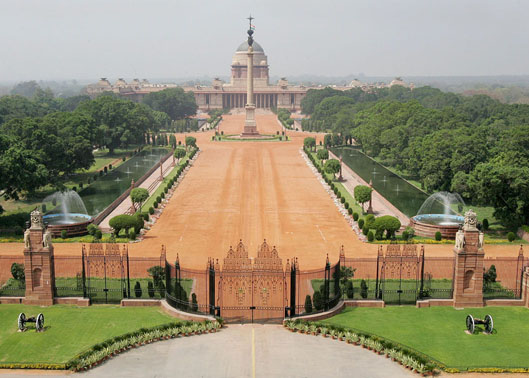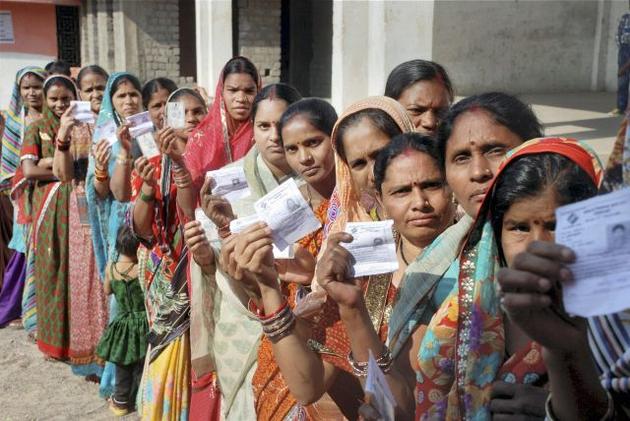PRIYANKA GANDHI: HEADING NEW FRONTIERS

THE ANNOUNCEMENT
As the Congress party made the announcement appointing Priyanka Gandhi as the AICC general secretary for the politically charged Eastern UP, murmurs could be heard across the political spectrum. Political pundits came up with contradicting predictions regarding the impact of Congress’ decision on LS elections. Notwithstanding the likely prognosis, the salience of this announcement hasn’t been lost on any. With her uncanny resemblance to Indira Gandhi, holding out hopes of a genuine alternative to strongman leader Narendra Modi, and her effervescent charm, Ms. Gandhi is likely to improve the poll prospects of the Congress party within the state.
REASONING BEHIND THE DECISION
Priyanka Gandhi’s appointment to Eastern UP, a region pregnant with symbolism and substantive importance, needs to be read carefully. The region has boasted constituencies of political bigwigs such as Jawaharlal Nehru, Lal Bahadur Shastri, Indira Gandhi, Rajiv Gandhi, and contemporary heavyweights like Narendra Modi and Yogi Adityanath. Needless to say, Priyanka’s appointment in this politically charged region speaks volumes of the immense faith Congress reposes in her besides the valuable role she’s anticipated to play in the Congress party in due course of time. Winning back what was once a Congress stronghold carries immense symbolic heft with itself. Additionally, the move is seen as a snub to the BSP-SP alliance for leaving the Congress out in the cold and might be part of Congress’ efforts at arm twisting the alliance into accommodating it within the electoral pact. This calculation runs on the assumption that Priyanka’s appointment is likely to bolster Congress’ poll prospects in the state.
PUBLIC PERCEPTION OF PRIYANKA GANDHI
At a time when the dominant narrative in the political arena seems to be harping on the invincibility of PM Narendra Modi, Priyanka’s likeness to Indira Gandhi comes as a sigh of relief. Since Indira Gandhi was known for the authority she wielded, Priyanka’s appointment elicits the feeling that Congress will continue to have formidable leaders. She’s known for her wit and charm, which is only complemented by her fluency in Hindi, thus allowing her to seamlessly reach out to the common man. Additionally, Priyanka Gandhi is known to have had some past experience in handling her mother and brother’s constituencies besides often being consulted in high stake decisions of the grand old party.
That said, Priyanka hasn’t exactly had smooth sailing so far. She was responsible for the alliance between SP and Congress which yielded catastrophic results for the two during the 2017 assembly elections. She’s also known to have played a role in the party’s drubbing in assembly constituencies in Amethi and Rae Bareli during the 2012 assembly elections. To add to that, the controversy regarding allegations of financial irregularities on part of her husband, Robert Vadra, only casts aspersions on her political innings. Her appointment further gives her political opponent the opportunity to raise calls decrying dynasty politics which pervades the Congress party.
PLAUSIBLE OUTCOME
Priyanka’s involvement could yield a variety of outcomes. Given how BJP’s and BSP’S vote shares of Brahmins and Dalits aren’t fully consolidated, Priyanka Gandhi’s appointment is likely to chip into these two vote banks. SP and BSP might contemplate on accommodating Congress in the alliance. Alternatively, it might antagonize the alliance further and end possibilities of any kind of rapprochement between the two. Nonetheless, Congress is expected to cut the votes of BJP and BSP-SP alliance. Matters continue to be muddy as recent statements by Akhilesh Yadav will suggest.
Many have predicted that poor showing in Eastern UP, an outcome highly likely since it’s tantamount to entering the proverbial lion’s den, might as well sound the death knell for Priyanka Gandhi’s political career. That said, it needs to be asked whether Priyanka Gandhi’s appointment is meant not for short term gains but for a long term revival in the fortunes of the Congress party in that state. It could be a possibility since the party, which once boasted of UP as one of its bastions, is now in shambles there, both organisationally and in terms of voter support.
ON DYNASTY POLITICS
Priyanka Gandhi’s prospective impact notwithstanding, the decision brings to light a disconcerting trend which has plagued Indian politics for long, viz. dynasty politics. In many parties such as SP, RJD, Congress, and Shiv Sena, politics has come to be viewed as a family business. This trend is pernicious, to say the least.
Democracy in a country consolidates itself further when the avenues to contest elections and for upward mobility within the party are equally open to all. Dynasty politics undercuts this possibility from the get-go. Given how it’s clear who the reins of the party will pass to, the deserving leaders never really get a chance to rise to the top. Party tickets are largely distributed based on the goodwill enjoyed by party members with the family, thereby promoting a culture of sycophancy. This prevents the development of a measure of autonomy in the rank and file and higher echelons of the party. This autonomy becomes important, for only in an environment of dissenting views can truly novel policy measures be evolved. Discussions and debates are, after all, the spirit of democracy. Needless to say, all of this works to inhibit the deepening of democracy. Additionally, more often than not, the focus of such parties becomes centered on care of personal interest and acquiring power than selflessly serving the public interest.
WAY FORWARD
Small steps have been taken within the Congress as Rahul Gandhi tries to organisationally revamp the Congress. Nonetheless, decisions like those of the appointment of another member of the Gandhi Family, i.e. Priyanka Gandhi, to the politically significant region of Eastern UP, raise doubts as to whether the Gandhi family will ever let internal democracy seep into the party. A robust democracy requires internal democracy in parties which play the game of elections. This has clearly been lacking in Indian political parties where they’re either run by political families or have become extensions of prominent personalities who command all authority. Restructuring of parties on democratic principles is the only way forward. Thus, elections could be held for important party posts such as secretary, treasurer and president. Furthermore, measures like consultations with party members on deciding party agenda and including the opinions of party workers from respective constituencies when deciding on ticket distribution should be encouraged.
Image Attribute: Pixabay




